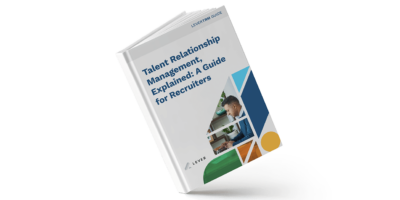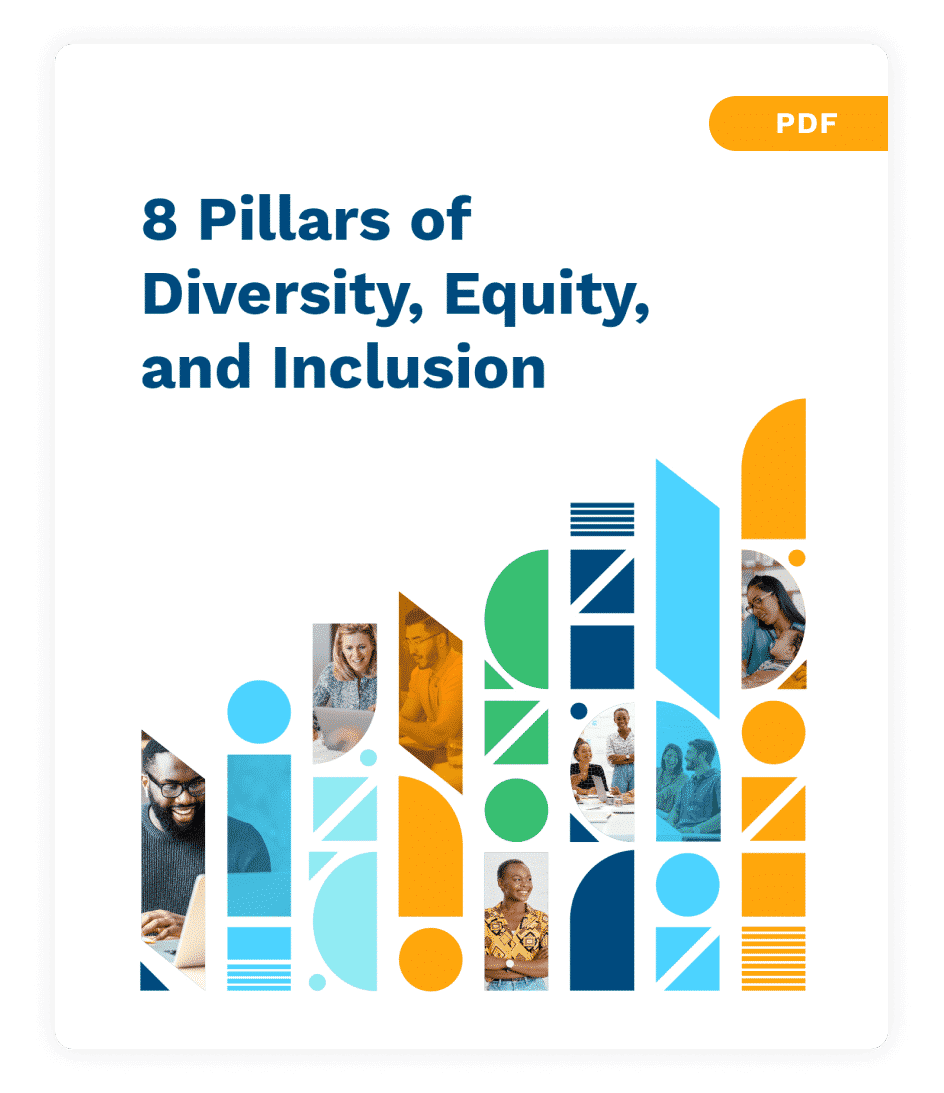The need to increase diversity, equity, and inclusion (DEI) efforts has long been clear, but the COVID-19 pandemic made it even more apparent — and urgent. Fully embracing DEI at your organization means doing more than just hiring people from a variety of backgrounds. A comprehensive commitment to DEI spans every part of the employee lifecycle. From attracting talent all the way through to succession planning, opportunities exist for companies to think bigger and better about DEI — and to make a true impact on their employees.
To get started on creating or refreshing your DEI strategies, we’ve created these 8 best practices for DEI that can serve as the foundation for your efforts.
1. Measure and Analyze Current Efforts
- Start by surveying your employees to understand the current state of your initiatives and identify gaps or areas of improvement.
- Set goals and get c-suite buy-in.
- Ask open-ended questions in different formats and share the results to foster transparency.
2. Attract and Recruit Diverse Talent
- Evaluate everything from the images on your site to the language in your job descriptions, to the channels or organizations where you source, then make adjustments to be more inclusive.
- Consider adding an equity statement to your careers page and gender pronoun options to your interview process.
- Use automated nurture messages to keep talent engaged, even when hiring is paused.
3. Eliminate Bias During Interviews and Hiring
- Review job descriptions to identify and eliminate any gendered terms.
- Take time to communicate with prospective hires about your DEI efforts.
- Use software to hide panel feedback until everyone has completed their own to minimize groupthink.
4. Facilitate Inclusive Onboarding
- Include an introductory training session explaining DEI definitions and efforts at your company.
- Highlight portions of your company handbook or policies that are specific to DEI.
- Connect new hires with employee resource groups (ERGs) or other support groups.
5. Lean on Learning and Development
- Provide consistent training, content, and conversations to teach and reinforce the importance of DEI — generally and to your organization.
- Bring awareness to everyday DEI topics: current events, global/local news, teachable moments, or company milestones.
- Task a DEI or inclusivity ERG with identifying and educating colleagues on how to use inclusive terminology in your product, communications, etc.
6. Use DEI to Boost Retention
- Practice clear communication about what you’re doing around DEI.
- Conduct regular surveys to assess how employees feel about the company and its performance.
- Include demographic questions in your surveys to analyze the intersectionality of the results.
7. Make Offboarding Count
- Use exit interviews to learn why employees are leaving.
- If common answers emerge around DEI, use that data to focus your efforts on building a more inclusive culture.
- Encourage honest conversations and try to solicit feedback about ways your company can improve.
8. Use Analytics to Measure Your Efforts
- Look at the conversion rate of resumes that passed to the phone screen and compare them with demographic data collected by your ATS.
- Identify where certain groups become underrepresented in the hiring process — or underpaid as employees.
- Refine those identified areas and keep tracking to measure improvements.
Fully embracing DEI at your organization means doing more than just hiring people from a variety of backgrounds. A comprehensive commitment to DEI spans every part of the employee lifecycle. From attracting talent all the way through to succession planning, opportunities exist for companies to think bigger and better about DEI — and to make a true impact on their employees.
 Talent Relationship Management, Explained: A Guide for Recruiters
Talent Relationship Management, Explained: A Guide for Recruiters
 For the third quarter in a row, Lever has won two Comparably awards!
For the third quarter in a row, Lever has won two Comparably awards!
